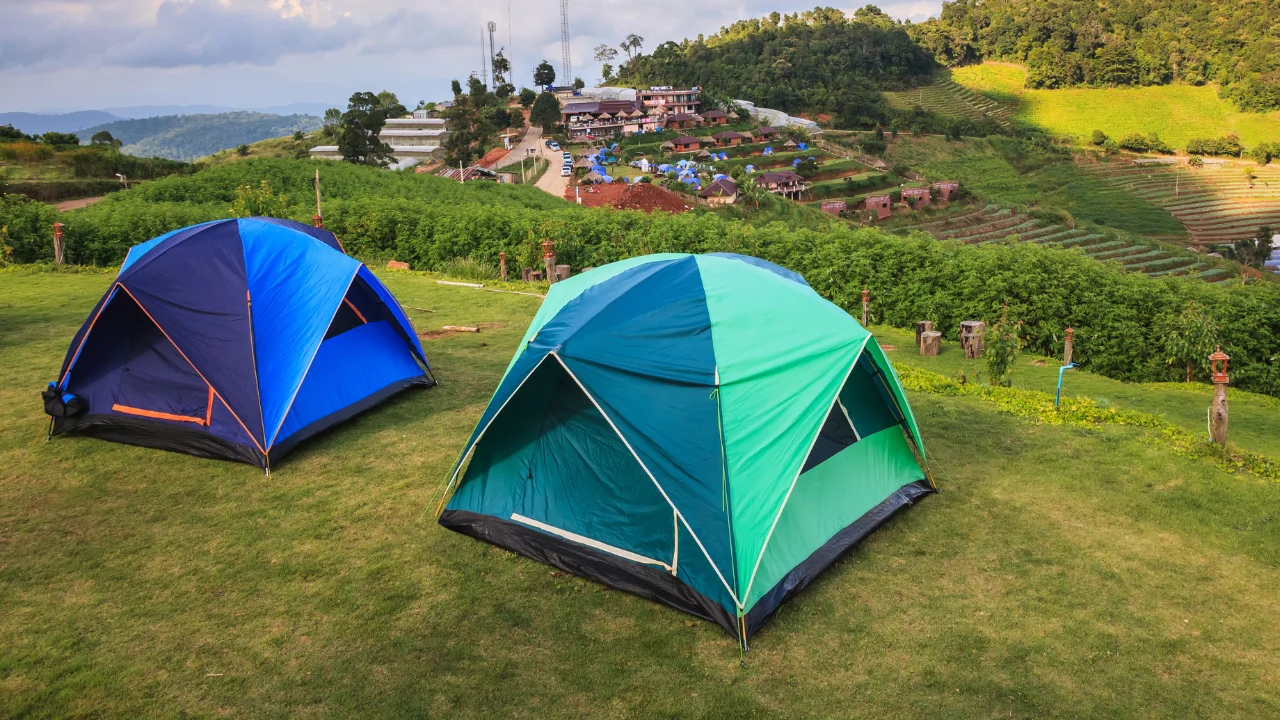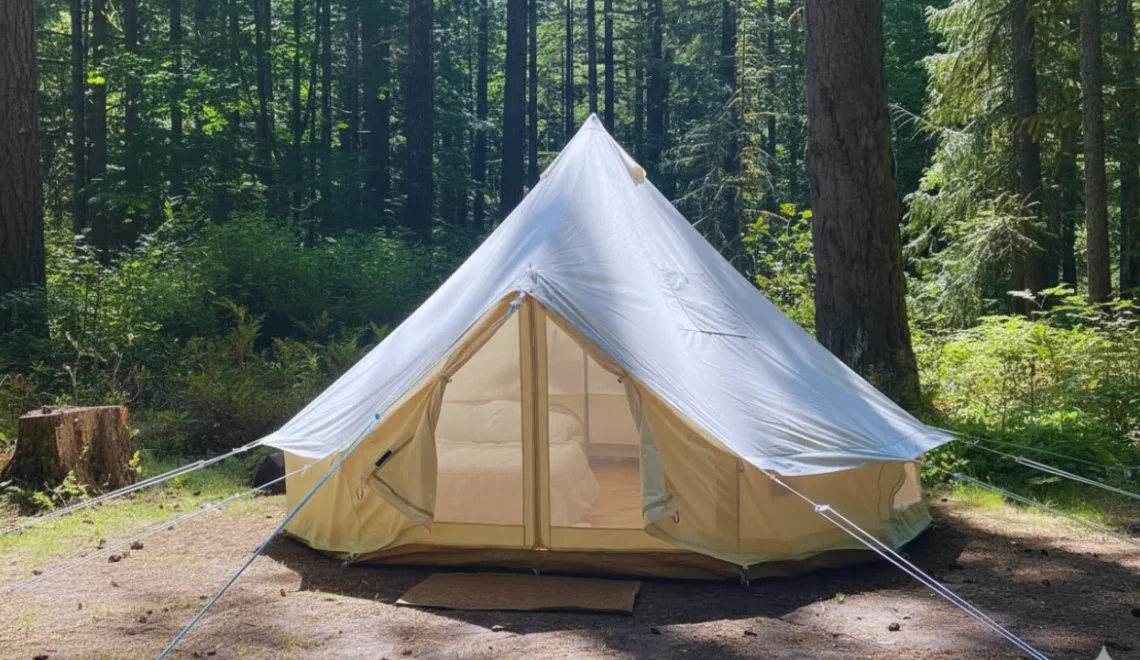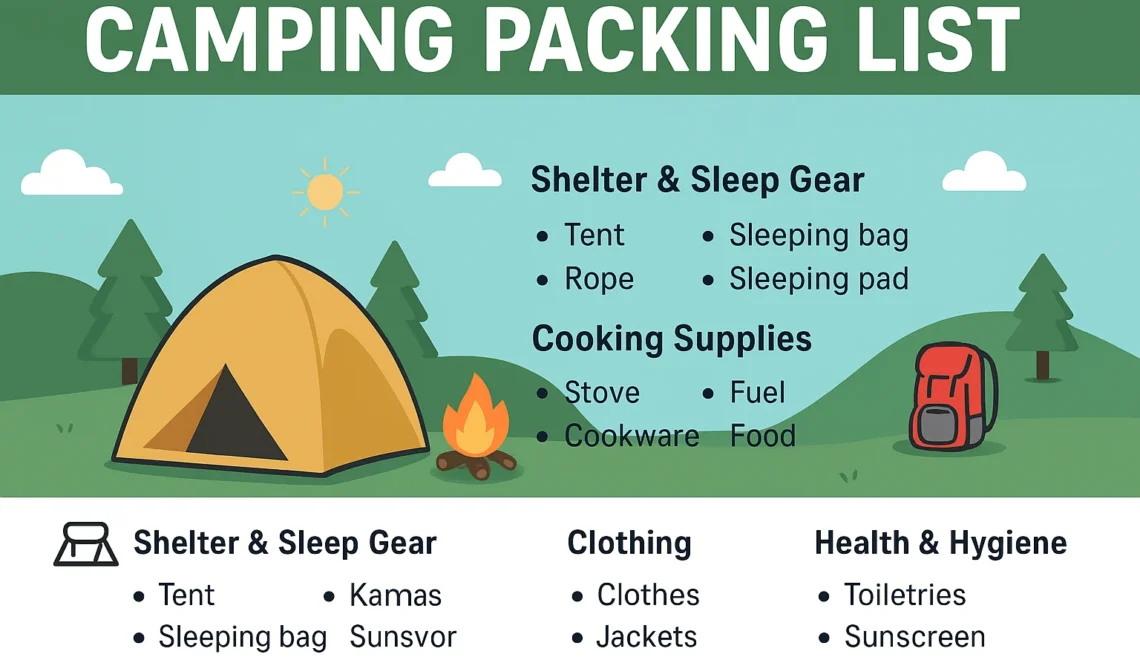
How Long Do Tents Last? Must-Know Facts
When planning outdoor camping, a reliable tent is a basic piece of gear. The lifespan of your tent plays a crucial role in your outdoor experience. The average lifespan of a tent is 3–10 years, depending on quality, use, and care. High-quality tents may last up to 10 years, and low-quality tents may last 1-3 years. The longevity of a tent depends on the quality of materials, frequency of use, and maintenance. In this article, we’ll explore these factors and tips to extend the life of your tent.
Table of Contents
ToggleFactors Affecting Tent Lifespan
Quality of Materials:
High-pleasant tents are made with long-lasting materials along with ripstop nylon or polyester. Polyester resist tears and abrasions more effectively. Poles of fibreglass are less durable. Aluminum poles are good and more durable. They may splinter or destroy more effortlessly.
Nylon and Polyester. Polyester materials are treated with waterproof coatings. High-quality nylon or polyester tents can last anywhere from 2 to 5 years with regular use.
Canvas. Canvas tents are heavier but incredibly durable. With proper care, a canvas tent can last up to 20 years. They are ideal for extended camping trips and harsh weather conditions but require more maintenance.
Frequency and Type of Use:
A tent used a few times a year for family tenting journeys will last longer than one used frequently for backpacking or mountaineering. Frequent exposure to robust winds, heavy rain, or severe sunlight can shorten a tent’s lifespan.
Proper Maintenance:
- Cleaning: After each experience, clean your tent to remove dust, sap, and debris. Use mild cleaning soap and water. Avoid harsh chemical substances that can damage the fabric.
- Drying: Dry thoroughly before storing it to prevent mold and mold boom.
- Storage: Keep your tent away from insects and harsh sunshine in a cool, dry location. Use a garage sack that allows the fabric to respire.
Exposure to the Elements
Tents exposed to harsh weather conditions will wear and tear more quickly. UV rays can ruin fabrics, and moisture and damp conditions can encourage mold and mildew growth. These factors significantly reduce a tent’s lifespan.
⇒ Also Read About Top Best 8-Person Tents For Camping
How to Increase the Lifespan of Tent
1. Regular Cleaning
Clean your tent regularly to remove dirt, debris, and other contaminants. Since they might damage the material, stay away from applying strong chemicals or detergents.
2. Avoid Prolonged Sun Exposure
Tents can withstand all outdoor conditions. Avoid sunlight because it may harm the tent fabric. Place your tent in shaded areas to minimize UV damage.
3. Proper Packing and Unpacking
Never stuff your tent into its storage bag when it’s wet or dirty. Before storing it, let it dry completely. Also, avoid over-stretching or over-packing the tent when setting it up. The cloth and poles may experience needless strain as a result.
4. Repairing Damage Promptly
Address the issue if your tent has any damage, such as rips, tears, or broken poles. Many outdoor stores sell tent repair kits to help you patch small holes in weak areas. Keeping your tent in good shape will significantly extend its lifespan.
Best Tips to Increase the Life of a Tent
- Use a Footprint. An additional layer of defense is offered by a groundsheet or footprint. It protects against sharp objects and rough terrain, reducing wear on the tent floor.
- Avoid Direct sunlight. Tent fabric can degrade over time due to UV rays. Tents should be placed in shaded areas whenever possible. Use a UV-resistant spray for protection.
- Handle with care. Avoid extra force when inserting or removing poles and zipping or unzipping doors and windows.
- Repair Promptly. Address minor issues like small tears or broken zippers immediately to prevent further damage. Tents usually come with a repair kit. You can also purchase one separately.
Average Life of a Tent
The average lifespan of a camping tent varies based on its quality, type, and how well it’s maintained. Here’s a general estimate:
- Low-Quality Tents: 1-3 years
- Standard Tents: 3-6 years
- High-Quality Tents: 8-10 years or more
- Canvas Tents: 10-20+ years (with proper care)
Proper care, like cleaning, drying, and storing the tent correctly, can significantly extend its life.
Type of Tent | Average Lifespan |
Backpacking Tents | 5-10 years |
Family Camping Tents | 6-12 years |
Ultralight Tents | 2-5 years |
Four-Season Tents | 7-12 years |
Pop-Up Tents | 2-4 years |
Canvas Tents | 10-20+ years |
Roof-Top Tents | 5-15 years |
When you should Replace your Tent
The moment to buy a new tent is when the expense of maintaining the old one is more than the cost of buying a new one. It could be time to retire your tent and put it in the spare parts pile. Even with proper care, tents don’t last forever. Here are a few signs that your tent may need to be replaced:
- Tears and Holes: If your tent has multiple rips or holes that can’t be easily repaired, it’s time for a new one.
- Leaking Seams: If your tent’s seams have begun to leak or show signs of wear, waterproofing may no longer be effective.
- Broken Poles: Poles bent or broken beyond repair may compromise the tent’s structural integrity.
- Fading or Deteriorated Fabric: Excessive UV exposure can weaken the fabric, making it prone to tears.
Conclusion
In conclusion, the lifespan of a tent can range from a few years to several decades, depending on various factors. By following best practices for storage and maintenance, you can extend the life of your tent. Proper storage, regular cleaning, and quick repairs can help your tent last longer. Avoid harsh weather, and keep it clean to make it more durable.
Investing in a high-quality tent and taking good care of it will ensure you’re prepared for your next adventure.




Regards for all your efforts that you have put in this. very interesting info .
Pretty! This was a really wonderful post. Thank you for your provided information.
I think this website has some rattling wonderful information for everyone : D.